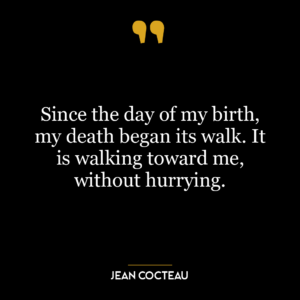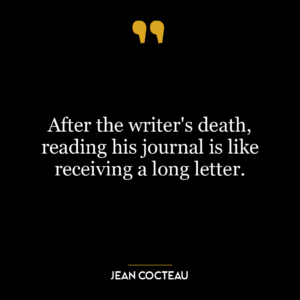This quote, “There is nothing after death, and death itself is nothing,” is a reflection on mortality and the nature of existence. It suggests that death is not to be feared because it is simply a state of non-existence, a return to the state before we were born. It implies that death is not an event or a condition, but rather an absence – the absence of life, consciousness, and sensation.
The first part, “There is nothing after death,” suggests a belief in the finality of death. This view aligns with many atheistic or agnostic perspectives which hold that there is no afterlife, no reincarnation, or spiritual continuation. The second part, “and death itself is nothing,” further emphasizes this notion by suggesting that death is not a state of being or an experience, but a cessation, an end to existence.
Applying this idea to today’s world or personal development, it could be interpreted as a call to focus on the present and the tangible world. If death is the end and there is nothing beyond it, then our attention should be on life and living it fully. It encourages us to make the most of our time, to pursue our passions, and to invest in our relationships.
Moreover, it can be seen as a reminder of the impermanence of life and the importance of acceptance. By understanding and accepting that death is inevitable and final, we may be more likely to appreciate the present and live our lives with greater purpose and less fear. It can also lead us to value our relationships more, knowing that our time with loved ones is finite.
In terms of personal development, this quote could inspire a sense of urgency and motivation. If we consider death as the end, we might be more driven to achieve our goals, to learn and grow, and to make a positive impact during our lifetime. It can also foster resilience, as we understand that life’s difficulties are temporary and that our time to overcome and learn from them is limited.
In summary, this quote can be a powerful reminder of our mortality, the finality of death, and the importance of living fully in the present. It can inspire us to live with purpose, courage, and a deep appreciation for the fleeting nature of life.













